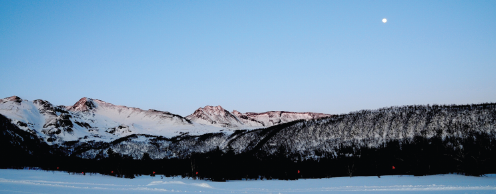Exposing the beauty and mysteries of Changbai Mountain
 |
|
The Changbai Mountain reserve is a paradise for winter sports lovers and is home to one of the nation's best ski resorts. [Photo provided to China Daily] |
The Changbai Mountain reserve, which sits between China and the Democratic People's Republic of Korea, has long been a major summer and winter tourist destination. But it is also considered a holy mountain in kung fu and other ancient Chinese novels. Why did ancient Chinese literature hold Changbai Mountain so dear and what kinds of fantastical creatures were created out of a love for the mountain?
Part of the reason is geographic. Changbai Mountain, also known as Paektu Mountain, is the tallest in Northeast China. It is also embraced by both the Manchu and Korean people as their sacred place of origin, the range representing the mythical birthplace of the Manchu state and the Qing Dynasty (1644-1911) founders.
As early as the pre-Qin period (the Qin Dynasty reigned from 221 BC to 206 BC), Classic of Mountains and Seas, an ancient compilation of Chinese mythology, mentioned Changbai Mountain, though at that time it was called Buxian.
During the Qing Dynasty, emperors held Changbai Mountain in such divine regard that the mountain and its surrounding areas were designated a forbidden area for approximately 200 years. It is this gap of inaccessibility that shrouded the mountain range in mystery and thus stoked the creative fires for writers at that time.














